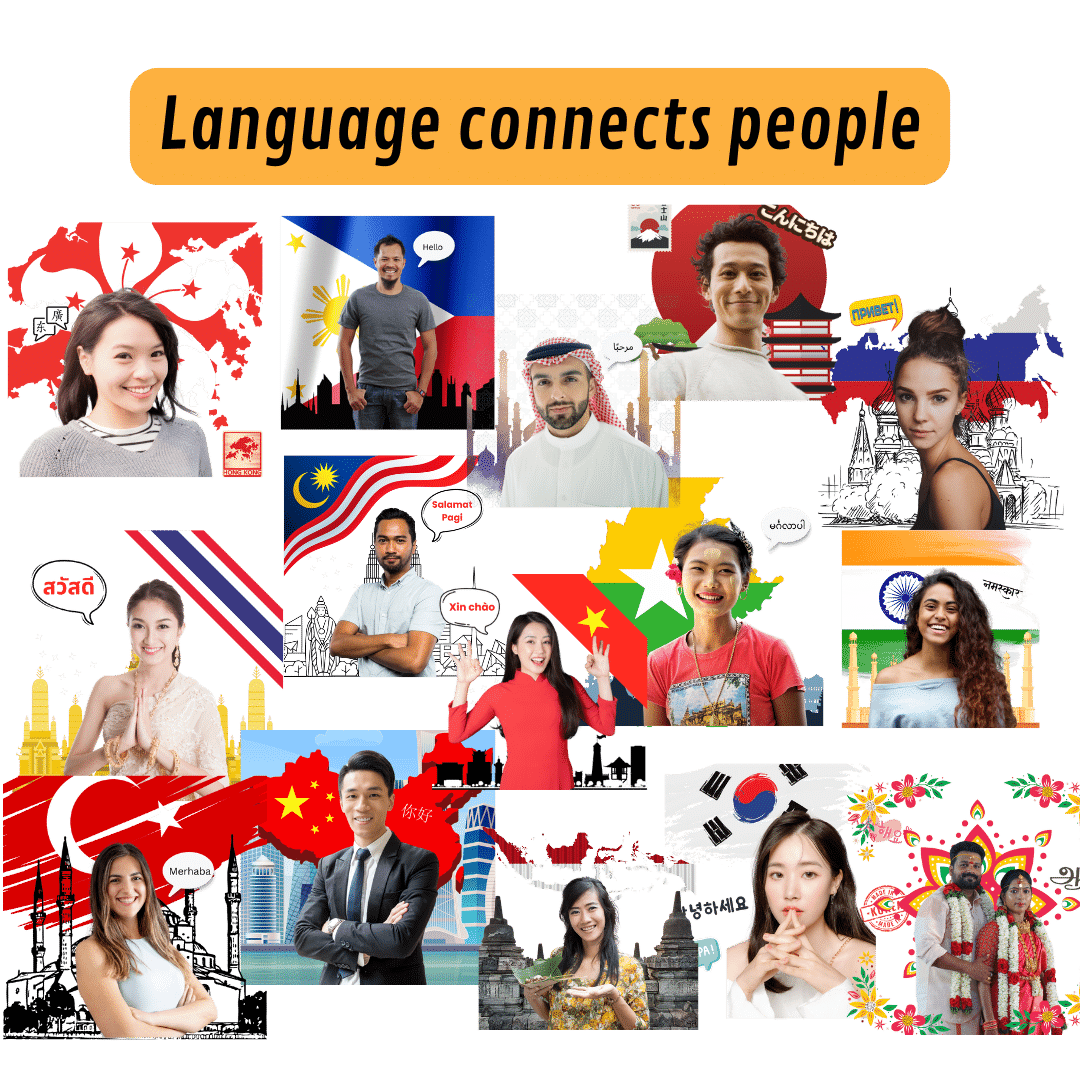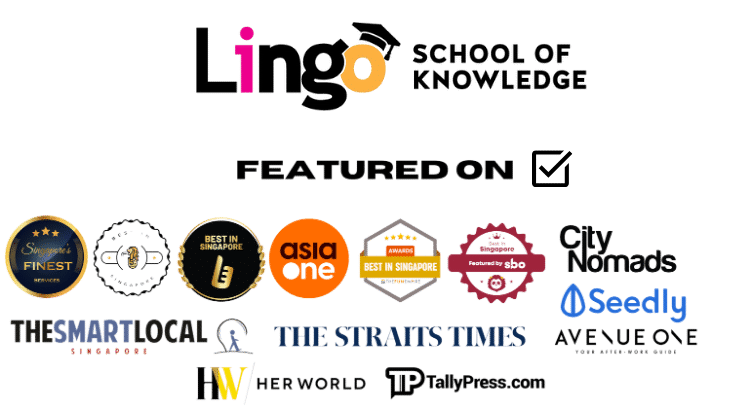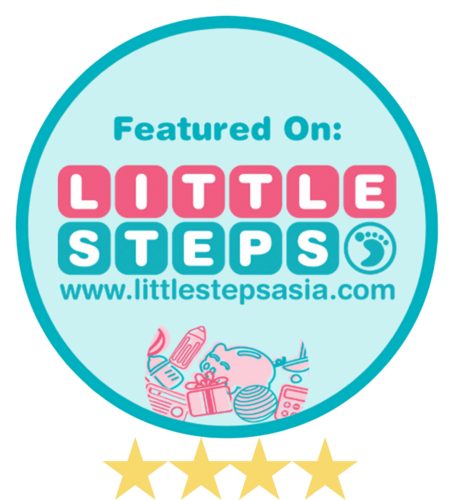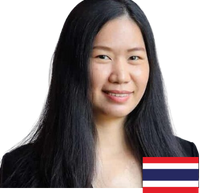Learn a new language with Lingo
To speak a new language fluently? You can learn more than 20 languages with us at Lingo. It’s our goal to help you master a language in all aspects: listening, reading, speaking and writing.
Our teachers are highly qualified native speakers, so you can be sure to learn the language correctly.
We also provide examination preparation programs for languages

Small group language classes
Small groups of max. 8
So you can improve your language up to 2x faster
We place you at the right difficulty level: not too easy, not too difficult.
More than 20 available languages
What would you like to learn?
Trusted by over 3000 companies in Singapore




Rated best language school 2023 – 24

• MOE Registered School * Online and onsite classes * Located in the heart of orchard * Highly qualified trainers * Small group classes * Native speakers *

Hello, I'm Alex
When classes are small enough to allow individual student-teacher interaction, a minor miracle occurs: Teachers teach and students learn
I thought it would never work when we started our first language school in 2012. I thought it was too simple because it didn’t have more than one class a week. Was it enough? At just 2 hours? I was also concerned about students’ lack of time to learn German, French or Spanish after a full day of hard work.
I was afraid that students might not have the time to learn and may quit halfway. But I was also fed up with seeing other schools squeezing many students into a class so that they could earn a higher profit.
So, I decided to start a German language school with a couple of German teachers (subsequently, 20 other languages came along) in a fully interactive class that only a small group of students can achieve. If it didn’t work out, I figured that at least I had tried my best.
I thought to myself: “I have little to lose”…
Now, those first nine weeks were a little weird, to be honest. The initial batch of students were surprised that the class was small. And they got attention from their trainer, which they never had before.

Happy trainers happier students
At Lingo, we see language, first of all, as a communication tool.
We align our European courses closely with the CEFR framework so that what you learn leads to an official certificate recognised by the authorities.
Why learn a new language?
Learning a new language opens your mind and lets you get to know new people with different perspectives.
You needn’t be fluent in the language to start seeing the benefits. If you try to speak just a few words of German, your conversation partners will double up their efforts to make themselves understood in English.
Lingo School of Knowledge is part of Crystal Learning Centre Pte Ltd
The Team
With over 20 years of operation, Lingo School of Knowledge has served multiple generations in Singapore, successfully adapting to challenges while maintaining a high standard of language education. Over time, we have curated a carefully selected team of trainers to deliver quality language programs.

Mr. Bernhard

Ms. Angel

Ms. Amy

Ms. Devina

Karl

Areum

Ms. Merly

Ivy

Ms. Kailing

Earth

John

Ms. Ben

Ms. Marie

Celeste

Ms. Thip

Maii
More than 20 available languages
